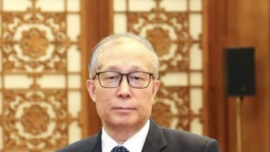Macau Business | February 2021
The city takes a step forward to advance cashless payment here with an integrated payment system — Simple Pay — amid calls for more supervision and complementary measures
While the COVID-19 pandemic has crippled the economy of the city and beyond, as well as bringing suffering and fear to many people, one of the silver linings for the gambling enclave is the rise of digital payment, accelerating the process of digitalisation which might have taken many more months, or even years.
As the Government also wastes no time in further advocating cashless payment against this background, launching an integrated payment system to provide more convenience for residents and merchants to settle transactions with their phones and gadgets, observers call for more supervision over the segment and more fintech infrastructure for the city to catch on.
The Monetary Authority of Macau (AMCM) announced in January it is launching the so-called “Simple Pay” integrated payment system in two phases in the first quarter of this year. The first phase, which begins in February, allows merchants to only use an integrated payment terminal, rather than multiple devices for different payments. This means it can now accept all digital payment methods. It is done so that all merchants using the device with the integrated payment system to scan the payment QR code on customers’ phones.
After testing the market response and the capability of the system in the first phase, the second phase will start in March — merchants will be given their unique QR code, which customers can scan and choose the digital payment means they wish for transactions.
“[‘Simple Pay’] is one of the major tasks by the Macau SAR Government to provide convenience for residents and merchants, marking a new stage for the development of digital payment [here],” the city’s de-facto central bank says. “With more convenience offered by [‘Simple Pay’], it will help merchants to expand their customer base, spike transactions and increase turnover, as well as saving them time and money from applying multiple [payment] devices.”
This integrated system has been long sought by the public given an array of mobile payment means available here: shops might only have two or three specific payment terminals beforehand, limiting the choices of digital payment customers could have. Under this new integrated payment scheme, there are a total of five financial institutions presently offering the integrated payment terminal for merchants — Bank of China Macau Branch, Industrial and Commercial Bank of China (Macau) Ltd, Tai Fung Bank, Macau Pass S.A. and UePay Macau Ltd — accepting at least eight local mobile payment platforms from MPay to BOC Macau mobile banking and other overseas e-wallets.

Surging
Samuel Tong Kai Chung, president of the Macau Institute of Management, applauds the authorities taking this initiative, as “this pandemic has changed the behaviours of consumers and some [patterns of] economic activities… accelerating the process of digital economy. Should [the Government] not improve the local financial infrastructure promptly, this might weaken the city’s competitiveness in the post-pandemic era.”
Local businesses, mostly made up of small-and medium-sized enterprises (SMEs), are also more open to mobile payment and the development of the digital economy amid this pandemic. “Some SMEs and wet market vendors didn’t have the willingness and initiative to install the payment machines before the pandemic… but now most have had,” the academic adds.
One of the biggest drives is the consumption voucher scheme rolled out by the authorities last year to spike the local economy and domestic demand in the wake of the coronavirus outbreak. The Government gave each resident vouchers worth MOP8,000 in total in two stages, which were distributed in the formal of stored-value cards Macau Pass. This has led more residents to use cashless payments, while more shops have installed the Macau Pass terminals that could accept both the vouchers and MPay.
Figures from the monetary authority show there were 70,000 mobile payment terminals by the end of 2020, almost double from 37,000 by end-2019 and more than quadruple from 16,000 by end-2018. The number of mobile payment transactions in the fourth quarter of last year surged 191 percent year-on-year to 24.64 million, in a sharp contrast to only 1.34 million transactions recorded for the entire year of 2018, the data said.
The transaction volume via mobile payment in 2020 totalled MOP6.33 billion — or MOP1.58 billion per quarter — increasing by more than fivefold from MOP1.23 billion in the entire year of 2019. In comparison, the total value of transactions via local credit cards in the first three quarters of 2020 was MOP14.4 billion, or MOP4.8 billion per quarter, the latest AMCM data said.
“Should [the government] not improve the local financial infrastructure promptly, this might weaken the city’s competitiveness in the post-pandemic era,” says Samuel Tong, president of the Macau Management Institute

Incentives
Lei Cheok Kuan, president of the Industry and Commerce Federation of Macau Central and Southern District, reiterates local SMEs are welcome to the “Simple Pay” scheme, which they believe could help their business turnover. “Many more merchants have accepted the digital payment in the past year given the Government-issued e-vouchers,” he remarks. “The pandemic has accelerated this process as merchants have to exhaust their means to keep their businesses afloat.”
Digital payment providers now charge merchants a fee from 0.5 percent to some 1 percent of the value of each transaction settled via their platforms, says Mr. Lei. “While we understand the city is a free economy, we wonder whether the Government could help reduce this price gap among different providers,” he says, adding it would also be beneficial for providers to roll out some incentive measures for merchants to use their devices.
ICBC Macau, one of the five financial institutions that will help merchants to upgrade their payment devices to include the “Simple Pay” system, says in a statement that it could help merchants “lower their operating costs” and further “change the behaviours of consumers”, adding it would work alongside with the authorities and merchants to ensure this scheme is in place on time.
Following the implementation of the “Simple Pay” system, the lender says it will have “more fee subsidies and digital payment promotion activities to facilitate the change in the behaviour of consumers, creating a better business environment for SMEs”.
“The pandemic has accelerated this process as merchants have to exhaust their means to keep their businesses afloat,” says Lei Cheok Kuan, a SME association president
Healthy competition
Another local payment service provider, Macau Pass S.A., also pledges support for the scheme, remarking it will be “actively” subject to the supervision of AMCM to “ensure the stability in the market”. Emphasising its mobile payment platform MPay is the largest in Macau with over 510,000 registered users, the company announces that it will help businesses build “a comprehensive digital payment ecosystem to entice consumers to spend”.
In a recent briefing with the media, Man Wong, deputy general manager of Macau Pass, advised that the firm would roll out incentive measures to attract merchants to use their terminals and “keep the competition healthy” with other digital payment providers.
Mr Tong from the Macau Management Institute also notes while the “Simple Pay” scheme could enhance the efficiency of digital payment, the Government should also be cautious to ensure all the providers “maintain healthy competition”. As the integrated payment system concerns a large amount of personal data, namely, the digital footprint of consumers, the authorities and the providers should pay particular attention to safeguarding consumers’ privacy, he adds.
Privacy
From the perspective of legislator Ho Ion Sang, the Government should further strengthen supervision over digital payment providers with a comprehensive set of rules relating to data access and storage. “With better supervision… this could safeguard the rights of consumers,” the lawmaker says.
As there are local regulations now that penalise telecommunications providers for any disruption to their services, the legislator thinks similar rules could also apply to the payment providers. “Stability of the platforms is of paramount importance for the development of digital payment,” he adds.
Albeit this is the latest step taken by the authorities, the city still lags behind other neighbouring regions in the development of digital payment. In Hong Kong, a payment financial infrastructure — the Faster Payment System (FPS) — was introduced in 2018, which supports immediate credit transfer and payment across different banks and payment service providers. FPS does not only support point-of-sale (POS) payment, as does “Simple Pay”, but it also supports online shopping payment, person-to-person and business-to-business money transfer.
“The Macau Government should closely follow the latest financial and technological developments around the world… and gradually launch the relevant infrastructure and policies,” Mr Ho adds.
























